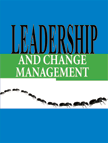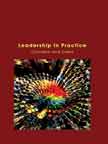Irene Rosenfeld: Setting New Directions for Kraft Foods
|
ICMR HOME | Case Studies Collection
For delivery in electronic format: Rs. 500; For delivery through courier (within India): Rs. 500 + Shipping & Handling Charges extra » Leadership and Entrepreneurship Case Studies » Short Case Studies » View Detailed Pricing Info » How To Order This Case » Business Case Studies » Case Studies by Area » Case Studies by Industry » Case Studies by Company Please note: |
|||||||
|
""Servant leadership" is the most important aspect of a successful leader - the recognition that I am here to help the organization accomplish its objectives rather than they are here to meet my needs. Once you recognize that, you are able to engage the hearts and minds of your followers, and they are able to just deliver the kind of results that you are looking for." -Irene B. Rosenfeld, Chairman and CEO of Kraft Foods Inc., in 2010.
-was credited with turning Kraft around and positioning it for growth through the takeover of British chocolate giant Cadbury Plc.2 "Irene Rosenfeld is a visionary leader with business acumen, savvy and real impact. She's a catalyst who recognizes and seizes opportunities and empowers others to get dynamic results," said Robert Swieringa, dean of Johnson School at Cornell University3. Upon taking over as CEO of Kraft in 2006, Rosenfeld launched a three-year turnaround plan to bring the company back to profitability and growth. She repositioned Kraft by transforming its product portfolio, revamping some iconic brands, and consolidating its presence in emerging markets. In February 2010, Rosenfeld successfully spearheaded the takeover of Cadbury to make Kraft a market leader in the global confectionery market. According to Greggory Warren (Warren), an analyst at Morningstar, Inc.4, Rosenfeld has been "very smart about what she has been doing and how she has been doing it."
1] Fortune is a global business magazine published by media group, Time Inc. |
Case Studies Links:-
Case Studies,
Short Case Studies,
Simplified Case Studies.
Other Case Studies:-
Multimedia Case Studies,
Cases in Other Languages.
Business Reports Link:-
Business Reports.
Books:-
Textbooks,
Work Books,
Case Study Volumes.







